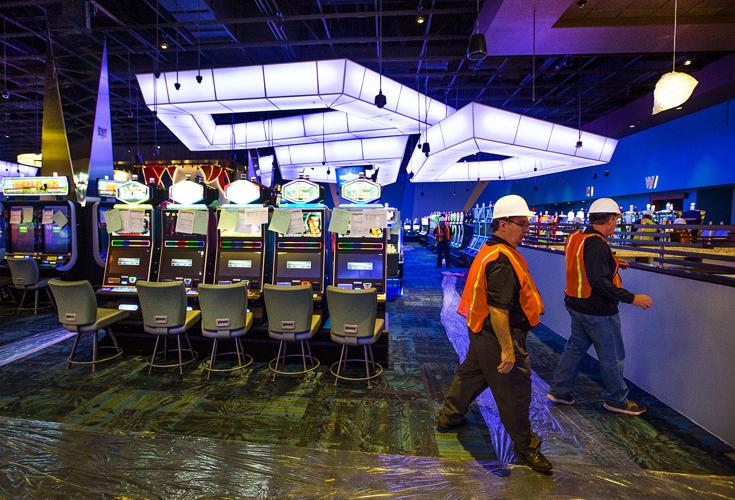PHOENIX — An assistant attorney general has admitted he deliberately destroyed notes of meetings with representatives of tribes trying to undermine the Tohono O’odham casino in Glendale.
That destruction could undermine efforts by Gov. Doug Ducey’s administration to stop full-scale gaming at the Glendale casino.
In depositions, Assistant State Attorney General Roger Banan said he was sent to the meetings by Daniel Bergin, director of the state Department of Gaming. Bergin has been opposed to the Tohono O’odham opening the casino at all. And now that it’s open, he is trying to block full-scale casino gaming there.
Banan said he was tasked with meeting with other area tribes that, for their own reasons, are opposed to the Glendale casino. Those tribal representatives presented a variety of ideas of what Bergin should do to kill the Tohono O’odham casino, he said.
Attorneys for the Tohono O’odham asked Banan for the notes to find out whether Bergin, who subsequently made several moves against the tribe, was being influenced by the other tribes who, as competitors, would want to block the casino.
Banan, however, said they can’t have the notes because he destroyed them after briefing Bergin.
He said he no longer considered it necessary to keep them and that the other tribes with whom he was talking wanted the discussions kept secret.
Banan has been required to answer questions from attorneys for the Tohono O’odham Nation about those meetings. But, testifying under oath in his Aug. 23 deposition, and with no notes to refer to, Banan told tribal attorneys he could not recall anything that happened at any of the three meetings.
Attorneys for the Tohono O’odham are suing Bergin in federal court, saying he is illegally blocking their demand the tribe be allowed to conduct Class III gaming at the Desert Diamond West Valley Casino and Resort.
It opened late last year as a Class II facility — which does not require state permission — operating machines that are similar to slot machines. The tribe cannot offer live games like poker and blackjack.
Bergin, in trying to quash the lawsuit, filed a counterclaim arguing that the tribe defrauded the state and voters in 2002 when gaming compacts were negotiated and approved at the ballot box. Bergin contends the tribe deliberately hid its plans for a Glendale casino even as voters were being told there would be no new casinos in the Phoenix area.
But if U.S. District Judge David Campbell believes that Bergin and his agency have not been playing fair in this and other ongoing lawsuits with the tribe, he could unilaterally block the state from making that fraud counterclaim. That would strip the state of its main defense in the litigation, making it easier for the Tohono O’odham to get a ruling in their favor.
Campbell already has raised questions about Bergin’s actions.
In an order last month, the judge called it “troubling” that the state gaming regulator would partner with some tribes he regulates “to thwart expansion of another.” Campbell said there are good reasons for the Tohono O’odham to know what Bergin and Banan were saying to other tribes.
In new court filings Wednesday, Paul Charlton, the lead attorney for the Tohono O’odham, told Campbell that the intentional destruction of the notes leads to several conclusions. Most notably, Charlton said, it suggests that Bergin was taking actions against the Tohono O’odham at the behest of the other tribes.
Charlton said that after Banan met with the other tribes and briefed Bergin, the gaming director sent out letters to gaming supply companies “threatening” to revoke their ability to do business in the state if they provided equipment to the new Glendale casino.
Charlton said Bergin also sent letters to employees who accepted positions at the casino, and suggested to the Department of Liquor Licenses and Control that it should deny a liquor license for the facility.
“Banan’s destruction of his notes was all the more egregious because they were public records protected by the Arizona Public Records Law,” Charlton wrote. “As such, Banan knew, or certainly should have known, he had a legal obligation to preserve them.”
A spokesman for the Department of Gaming said it would have no response to any matters pending in court.







